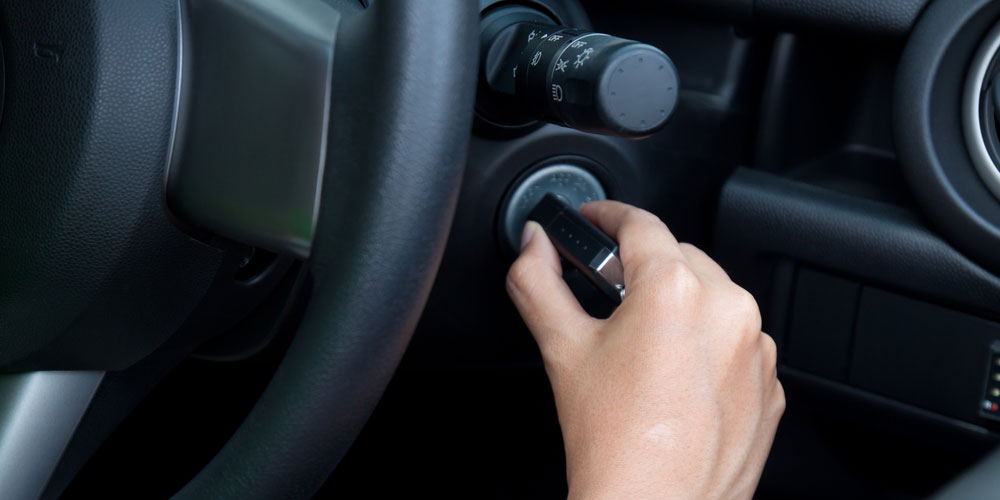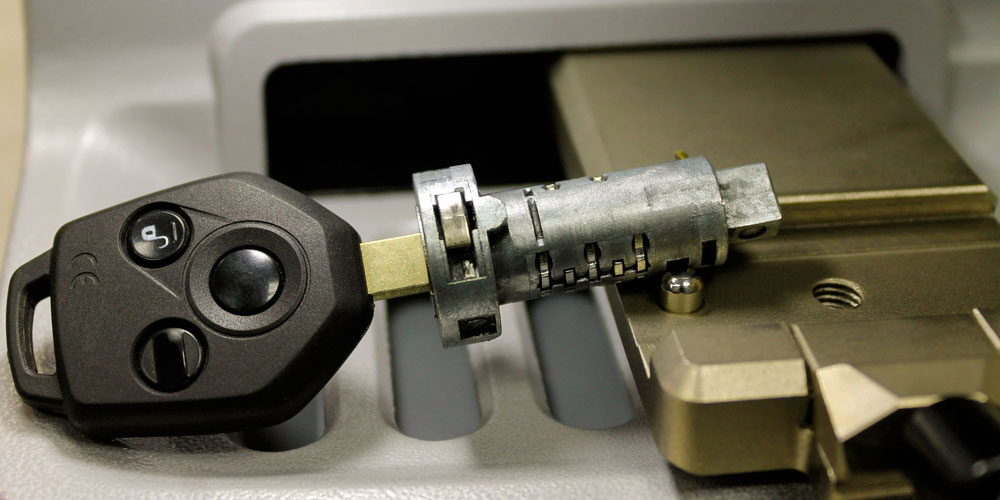Lock Blog
A resource for consumers, locksmiths, and security professionals
A resource for consumers, locksmiths, and security professionals

A car key sticking in the ignition key needs to be addressed. But how serious is it, and how do you know what is wrong? We will need to answer those two questions before we dive a bit deeper into how to find a fix for a car ignition sticking.
The general things to know about a key sticking in an ignition include:
The top solution for a car ignition sticking is dependent on the problem it is trying to solve. An issue with the cylinder cannot be fixed by addressing the key and vice versa. The best fix starts by zeroing in on your problem. You can get a more accurate diagnosis by contacting a locksmith.
The two main reasons for a key sticking in an ignition are key trouble and ignition trouble. From there, you can break these issues down into more specific causes. And if the car key won’t turn in the ignition while also sticking, there might be several things going wrong.
If you can get your car key to stop sticking in the ignition with some spray lubricant, that is going to be the least expensive option. But if you need to fix or replace something, the bare minimum cost is the price of the new parts. You can save money on ignition replacement or new car keys by doing the labor yourself, but in some cases, you will need a locksmith or the dealership.
Do not spray traditional WD-40 or any other oil-based lubricants into a car ignition cylinder. These substances attract dirt, which gunks up the internals of the locks even though it temporarily solves the sticking. Only use proper door lock lubricant. But this will not permanently fix every instance of a car ignition key sticking.
Even a slightly sticky ignition can not only worsen very rapidly, but it can also break your key. Every time a key does not turn or retract, the metal is being stressed. With enough stress, the metal will snap. And removing an ignition cylinder with a key is much more complicated.
A locksmith is the best way to get the correct diagnosis and solution for a key sticking in your ignition. Just be sure that you find a company that offers car locksmith services. They will be able to come to your location and offer everything you may need to get your ignition working.
Though it may seem like a key sticking in the ignition is only a minor inconvenience, it is extremely important to address the problem as soon as possible. Leaving car ignition sticking can quickly get out of hand in the following ways:
Sticking can turn to stuck as soon as the next time you use your car key. With a key stuck in the ignition, your options can become increasingly limited and exponentially complex. And if you can get your stuck keys out of the ignition, you should immediately address the underlying issue.
A key sticking in the ignition often leads to the blade snapping as you turn and pull to get it loose. Each time you turn a key and it does not move, things wear down. After a car key breaks off in the ignition, you have to remove the broken fragment, and you may not have a spare key.
Even if the reason for the key sticking in the ignition is exclusively the key, trying to remove it when it is not pulling out smoothly can damage the lock’s internal components. And instead of just addressing a faulty key, now you have to deal with car ignition repair.
Knowing the cause of a key sticking in an ignition is the best way to discover the solution. There are countless causes for a key sticking in an ignition, but they more or less fit into three primary categories.
Either something is blocking the inside of the keyway, the key has worn down (so it is no longer the correct shape), or the ignition is too damaged. To figure out which issue you are facing, look at the circumstances that lead to each type of break and the symptoms of each.
Dirt and grime can build up in an ignition cylinder, which decreases the space the key has to move in the keyway. Debris builds up slowly or suddenly, depending on what gets tracked in on the key or if you have sprayed the cylinder with an oil-based lubricant.
This type of build-up can also make it difficult to insert your car key into the ignition. If your key is sticking in the ignition and not sliding in properly, something might be blocking the keyway. You will need lubrication for minor blockage and cleaning for severe blockage.
A key turns a lock based on how its specific shape fits a lock. And when a key deforms or wears down, that shape can change to the point where it no longer fits the lock. This is a common reason for motorcycle key replacement, but car keys can also lose their shape.
Key wear can happen very slowly, with each insertion and removal grinding the metal smoother and reshaping it. If you have a new car key, it can be damaged fast if the metal is too soft or malleable. A key can bend slightly, almost unnoticeably, and it will stop working correctly.
You can look at your key and check to see if it is straight. Feel the grooves on the blade to check how smooth they’ve become. If the key can be inserted two ways, flip it, and see if the problem is more pronounced on one side versus the other.
Separate from blockage, the ignition can jam due to components breaking. Many keyed ignitions use wafer locks, which use springs and wafers that can corrode and wear out, just like a metal key. Breaking or misshaping can change tolerances enough, so the key has issues.
The cam or tailpiece can also get hung up, so the cylinder does not rotate correctly. And as a safety precaution, car ignitions retain the key until the cylinder rotates fully to the LOCK position. If that rotation is thrown off, the key will stick into the ignition until it is turned properly.
When your troubleshooting rules out blockage and any wear to the car key, the next step is to remove the ignition cylinder and look for what could be damaged. You may need a locksmith to find out what is damaged and the extent if you are unclear how the cylinder is meant to function.

Now that you are aware of the risks of not fixing a sticking ignition key, and have a better understanding of what is going wrong in your circumstances, it is time to find the solution. Some of this work you will be able to do yourself. Other instances will require a locksmith.
With a key sticking in an ignition, lubricant should always solve the problem, even if it only does so temporarily. In certain cases, a key that seems hopelessly stuck can even be removed after applying a bit of lube to the keyway. Just be sure not to use an oil-based lubricant.
Regular lock maintenance with a proper lock lubricant can prolong the lifespan of a lock and key. The reduced friction keeps metal from grinding too extremely, which means less damage every time the lock is cycled. (A cycle is when the key is inserted, turned, turned back, and removed.)
If the car ignition sticking continues to worsen and you find yourself constantly applying lube, it is a good idea to investigate other fixes. Do not rely on lubricant if you are having trouble with the ignition as soon as a month between applications.
Getting a new car key is not going to solve any issues revolving around the lock. If there is blockage or damage to the ignition cylinder, this is not the solution for you. Once you know you need a new key, the question is, where is the best place to get a new car key?
Can you just fix a broken key instead of replacing it? In the case of a sticking car key ignition, probably not. Fixing a broken car key is more likely when it is a fob or remote than a metal blade. So you will need a key that can be copied or contact a locksmith to make without the original.
You may be able to have a professional service copy a broken key if it is intact enough to decode, but this is not a job for your standard hardware store key cutter. If the key blade has worn down, copying will be even more difficult, but you can still get a fresh key made from the factory code.
Repair is either a partial replacement or extensive cleaning (beyond what lubrication provides). These types of repairs require the ignition to be taken apart for both diagnosis and servicing. The process of figuring out what needs to be repaired will require you to know how a functional cylinder looks and operates.
Common forms of repair include deep cleaning and polishing, which would remove large amounts of rust and prevent future oxidation. Once rust forms, it comes back very easily unless the metal is treated properly, so you need more than a vinegar solution or electrolysis.
Common parts to replace during repair are internal components such as pins, wafters, springs, tailpieces, etc. (The parts the key interacts with or move to actuate the cylinder.) Because rekeying a car ignition is possible, it is often very possible to get your hands on these parts.
A key sticking in the ignition may not seem problematic enough to warrant replacing the ignition, but as we have already discussed, the problem can get a lot worse. If repair and lubrication are not doing enough, you need to replace the cylinder before it stops working altogether.
To know if you need ignition cylinder replacement, you can call a locksmith. A professional service will also ensure the work is done properly, so you can still drive your car. Without a functional ignition, almost nothing about the car will work, so don’t mess around.
If you are looking to have your current key and door locks match your new ignition cylinder, you may need rekeying services. You can do this yourself if the internal components in the cylinder are intact and removable, but this is something that a locksmith can help with as well.
Now that you know what can happen if you do not address a sticking car ignition, you can see the importance of getting it fixed. And now that you have a better idea of what may be going wrong, you can figure out what fix will work for you.
We know that one article isn’t enough to give everyone the confidence to do this work themselves. So if you need any assistance, see if United Locksmith services your area. And for general questions or thoughts, leave them down in the comment section.
Category: Automotive, Car Keys, How To's